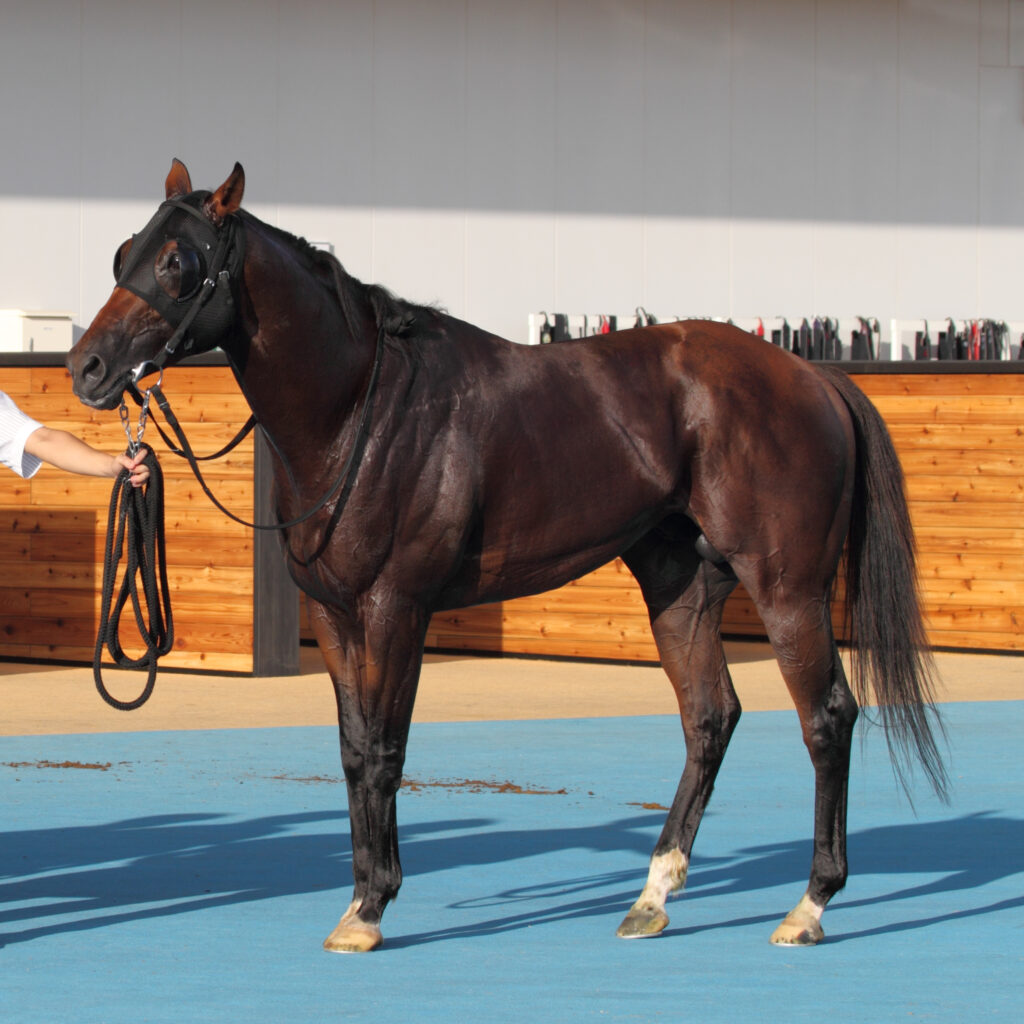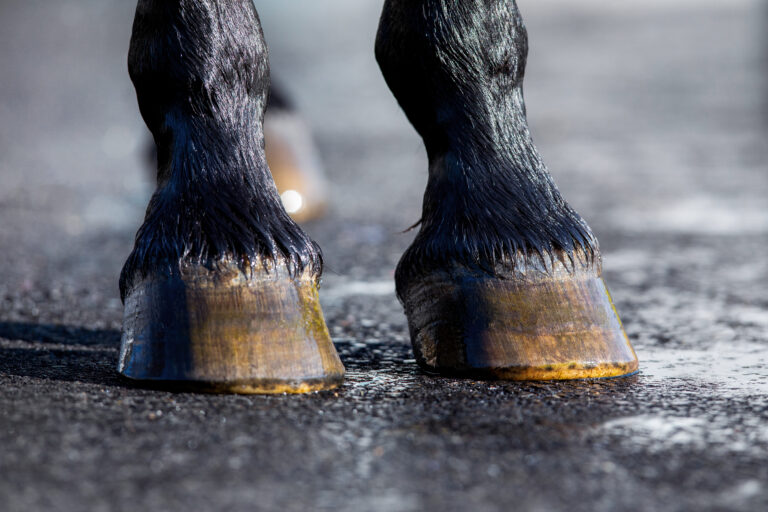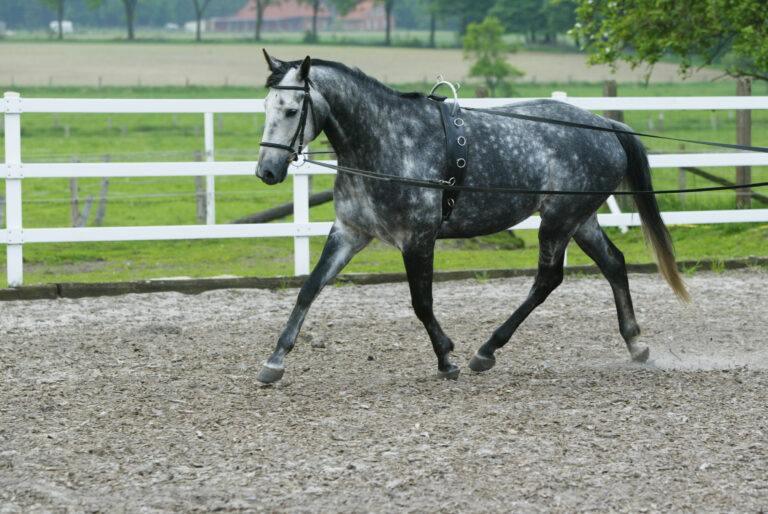
In this episode of the Disease Du Jour podcast, Jeffrey Berk, VMD, MRCVS, discussed his involvement in Thoroughbred sales, particularly for weanlings, yearlings, and young track horses.
This episode of Disease Du Jour is brought to you by Equithrive.
What Does Thoroughbred Sales Work Entail?
Berk primarily works for buyers at Thoroughbred auctions in the United States and Europe. He said his job involves three main things: performing thorough physical examinations, evaluating upper airways, and evaluating radiographs.
Berk says common findings vary by horse age. At breeding stock sales, when he’s evaluating weanlings, he’s primarily looking for developmental abnormalities such as osteochondritis dissecans (OCD). Older horses of racing age can be more challenging to evaluate because many of them have already sustained injuries.
“We’re evaluating the horse in terms of what may be a problem from a performance standpoint, but also what may affect the value of the horse,” Berk said.
Berk said prepurchase exams in auction settings are more constrained than in private sales for several reasons. “There’s a lot of traffic there,” he said. “In horses of racing age, we do jog them and we go over them carefully, but the time frame is compressed.”
Once Berk gets a shortlist of horses his clients are interested in, he tries to read the horses’ radiographs the night before. He also reviews videos of their airway scopes if available. Then, he can perform his physical exams more efficiently the following day.
“It’s a little bit like the equine equivalent of air traffic control,” said Berk about running physical exams in a hectic auction environment. “As far as what the job really is, it is a risk assessment. I don’t ever pass and I don’t ever fail a horse; I’m just providing information.”
Berk explains the auction setting in more detail in the episode.
How New Technology Is Impacting Thoroughbred Sales
While opportunities to use advanced imaging in auction settings are limited, Berk said one development that has positively impacted his work in private sales is positron emission tomography (PET) scanning.
“I’ve done some private exams of horses at the racetrack that had some radiographic findings, but they weren’t so pronounced as to be boosted into a high-risk territory,” Berk said. “In order to be able to sort out how those findings were affecting the horse right now, we went ahead and PET scanned some of these horses, and when they PET scan negative, meaning those findings on radiographs do not appear to be clinically active, it’s a level of assurance that helps the client make their decision.”
Berk said PET scanning is also utilized at some prominent tracks to assess horses’ suitability for racing on race day if their soundness comes into question.
Advice for Veterinarians Interested in Thoroughbred Sales
In closing, Berk said his work in Thoroughbred sales is fascinating and allows him to travel. “I’d encourage any veterinarian that was interested in pursuing it, but it’s not a short road,” he said. He explained that sales work requires a lot of experience in lameness diagnosis and an understanding that your job is not to pass or fail horses but to provide information to help clients achieve their goals.
About Dr. Jeffrey Berk
Jeffrey Berk, VMD, MRCVS, began his veterinary career as a racetrack practitioner and subsequently started a practice in Ocala, Florida. A past president of the AAEP in 2019, he also served on the AAEP’s Executive Committee as treasurer and the AAEP Foundation Advisory Council as Chair. Previously, he served as a director-at-large on the AAEP Board and recently as Chair of AAEP’s Racing Committee and Nominating Committee. A graduate of the University of Pennsylvania School of Veterinary Medicine, Berk currently resides and practices in Lexington, Kentucky, with Equine Medical Associates. His primary practice focus is international Thoroughbred sales work. His horse ownership has included the purchasing, breeding, selling, and racing of Thoroughbreds.
Related Reading
- Disease Du Jour: Role of the FEI Endurance Veterinarian
- Disease Du Jour: AAEP’s Wearable Biometric Sensor Research Project
- Disease Du Jour: Role of the Permitted Treating Veterinarian
Stay in the know! Sign up for EquiManagement’s FREE weekly newsletters to get the latest equine research, disease alerts, and vet practice updates delivered straight to your inbox.

![[Aggregator] Downloaded image for imported item #19420](https://s3.amazonaws.com/wp-s3-equimanagement.com/wp-content/uploads/2026/03/04100348/EDCC-Unbranded-32-scaled-1-768x512.jpeg)


